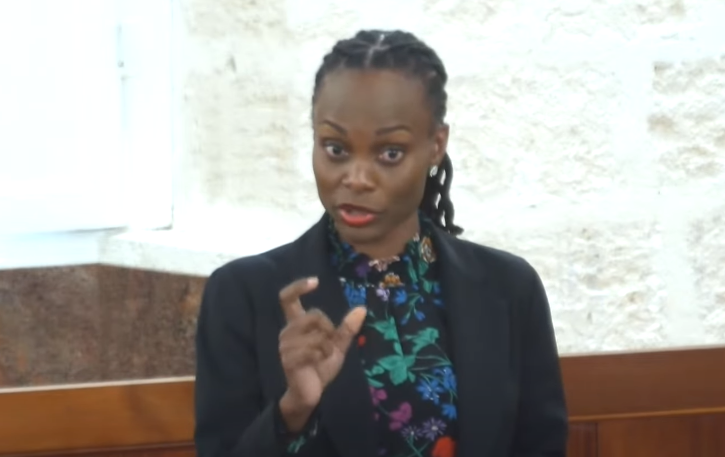What is the Real Benefit of Barbados' Renewable Energy Effort? Senator Crystal Drakes Raises Concerns about Consumer Impact

This article discusses Senator Crystal Drakes' concerns about the lack of clarity regarding the benefits of Barbados' renewable energy efforts and questions the broad approach of the Utilities Regulation (Amendment) Bill.
Senator Crystal Drakes has suggested that it is not clear what the real “bottom dollar benefit” of Barbados’ renewable energy effort is to the consumer.
She said Barbadians need to know how the renewable energy policy will benefit them. She told Wednesday’s debate in the Upper House of Parliament that recognising that fossil fuel import costs could reach as high as $900 million annually, and with the local market being “small”, the conversation must take into consideration the promise of “affordable” and clean energy for all.
“How do I benefit from the Government relinquishing power?” she queried. She was referencing the announcement by Minister of Energy and Business Development Senator Lisa Cummins that Cabinet had agreed to an Argentinian firm managing the process to boost this country’s energy storage capabilities through competitive procurement.
Contributing to the debate on the Utilities Regulation (Amendment) Bill, 2023, the independent senator noted that the amendment before the Senate was seeking to unlock the grid to facilitate more battery storage solutions for Barbados.
She asked: Why the carte blanche approach to the legislation if there is a specific problem you are trying to solve with the amendment? Why not bring an amendment that allows for a clear understanding of what you are trying to do, given the problem you have?”
“I have my reservations about how broad this piece of legislation is and if we are also saying that we don’t know what will happen in the future, it then means we are bringing the legislation where there is uncertainty, and we are now giving power to the minister in an environment that already appears to be chaotic,” she added.
During her contribution, Senator Drakes also noted that in an environment where there is a lot of interest and investment in the renewable energy sector, engineering appears to be lagging.
The economist also asked about the ownership of battery storage once it is in place.
“When that battery storage is acquired, who owns it? Is it upfront we own it? Is it through a tenure where a certain amount of testing needs to be done and once we realise it is operational then the ownership is transferred to the government? If we own it upfront and something goes wrong, who then takes the liability for that type of scenario?” she queried.
Senator Drakes also wanted to know who would regulate storage once it comes on stream. (SP)


